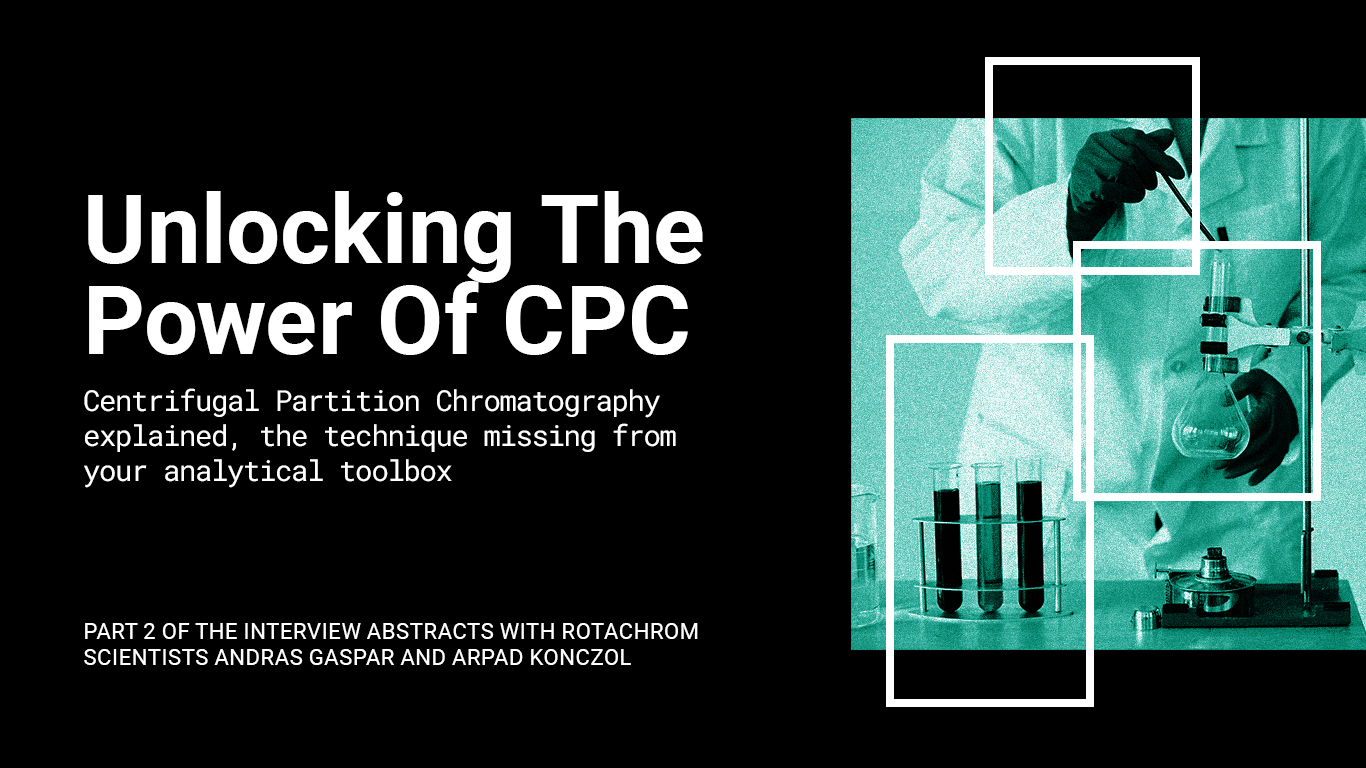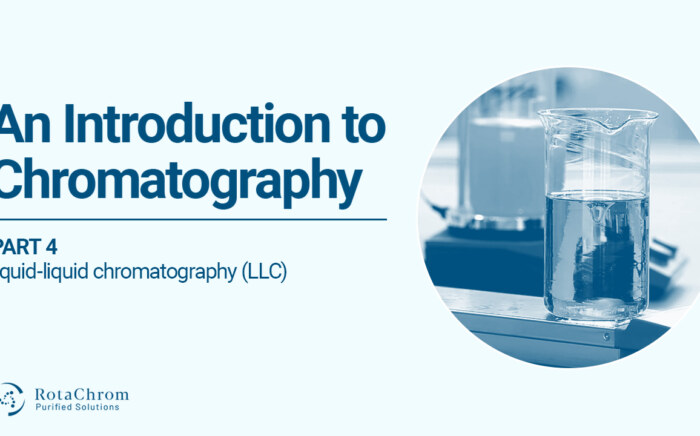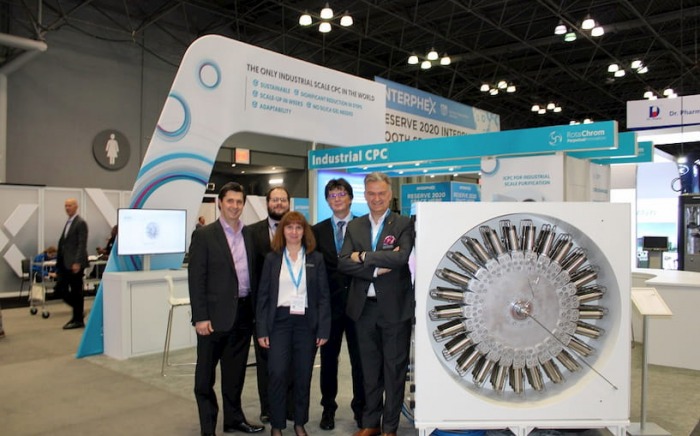Increasing separation efficiency by pH adjustment in Centrifugal Partition Chromatography
NewsWhy consider CPC over column chromatography
Given that column-based chromatography methods are widely used in most analytical labs, what are some of the reasons that teams should consider CPC techniques? The RotaChrom team offers the following insights:
“One of the biggest advantages of CPC is that it doesn’t use any solid material in the system, only liquid, so when something goes wrong, you can simply flush out the whole system,” says Könczöl. “This eliminates the problem of clogging that is common with columns.”
Gáspár adds: “The CPC system is also unaffected by the cleanliness or ‘grade’ of the solvents used. This can save costs, as there is a significant price markup for HPLC-grade materials when using column chromatography. CPC is a cost-effective downstream alternative.”
For industrial teams transitioning from batch production to continuous manufacturing, CPC offers the added benefit of being able to provide both operation modes on the same instrument. On the other hand, achieving continuous manufacturing with column chromatography can be challenging, especially when regulations need to be met. “CPC is incredibly versatile,” notes Gáspár, “not only in the different fields of application or types of solvents but also in operation modes.”
The art of scaling CPC: Transitioning from lab to production
When teams are ready to increase their production at the end of the preclinical phase, before moving into clinical research, they may need to produce larger quantities of the active pharmaceutical ingredient (API), sometimes in the range of kilograms. This scale-up stage can be challenging, particularly when it comes to scaling up the chromatographic set-up.
“Linear scale-up is easy to explain but very difficult to implement,” says Gáspár. “Going directly from the R&D stage to the industrial production stage can be very resource-intensive for the team. That’s why it’s important to have an intermediate step. We call this the pilot-scale.”
According to RotaChrom, the pilot-scale falls between the R&D and industrial production stages, and typically uses a tool that provides enough evidence and confidence to the end user that reliable scale-up is possible. The rCPC platform by RotaChrom is designed to serve this purpose, for pilot-scale tasks of all batch sizes, small or large.
“The pilot-scale rCPC platform is equipped with software tools that focus on optimizing the entire process, beyond just the method,” says Gáspár. “This means that users can fine-tune the entire system for maximum efficiency, whether they want to reach continuous operations or minimize downtime.”
Working alongside industry experts to reduce delays and costs
Onboarding a new analytical instrument is a major undertaking that involves more than just acquiring the instrument. It involves changing existing workflows, adding new protocols, assessing risks and costs, and preparing the entire team for deployment. Collaborating with trusted experts can minimize risks and shorten timelines.
“We don’t just provide CPC instruments to our clients, but actively engage in discussions about their analytical needs,” shares Gáspár. “While our scientists assist with method development and optimization, we also have teams that assess site readiness, regulatory specifications, throughput rates, and operational costs. We understand that investing in chromatography is a significant business decision for a lab, and we strive to reduce upfront risks and maximize long-term success.”
A Versatile Technology with a Wide Range of Applications
The centrifugal partition chromatography (CPC) method offered by RotaChrom boasts high levels of solvent flexibility, reducing operational costs in industrial applications. Unlike other chromatography technologies, RotaChrom’s CPC allows for a wide range of solvents and provides greater chemical space to adjust solvent selectivity. This flexibility can result in cost savings, particularly when a high-value target is the focus.
The wide range of applications for CPC includes the separation of small-molecule drug compounds, natural products, medicinal chemistry workflows, fermentation-based biotechs, and food and beverage extracts in the pharmaceutical industry.
RotaChrom’s industrial-scale CPC method has revolutionized preparative purification. This technology departs from traditional methods that use a solid stationary phase and instead offers a unique approach for precise molecular separation. The result is a system with higher yield and purity, lower costs, and streamlined downstream method development for a diverse range of purification needs.
The CPC system from RotaChrom can be applied across various industries, including pharmaceuticals, food and beverage, natural extracts, cosmetics, and fragrances. It is highly versatile and can handle everything from small molecule APIs to macromolecules and from hydrophobic lipids to completely hydrophilic peptides, all on the same instrument.
To learn more about using CPC in your purification process, visit RotaChrom’s application library for real-life examples.



